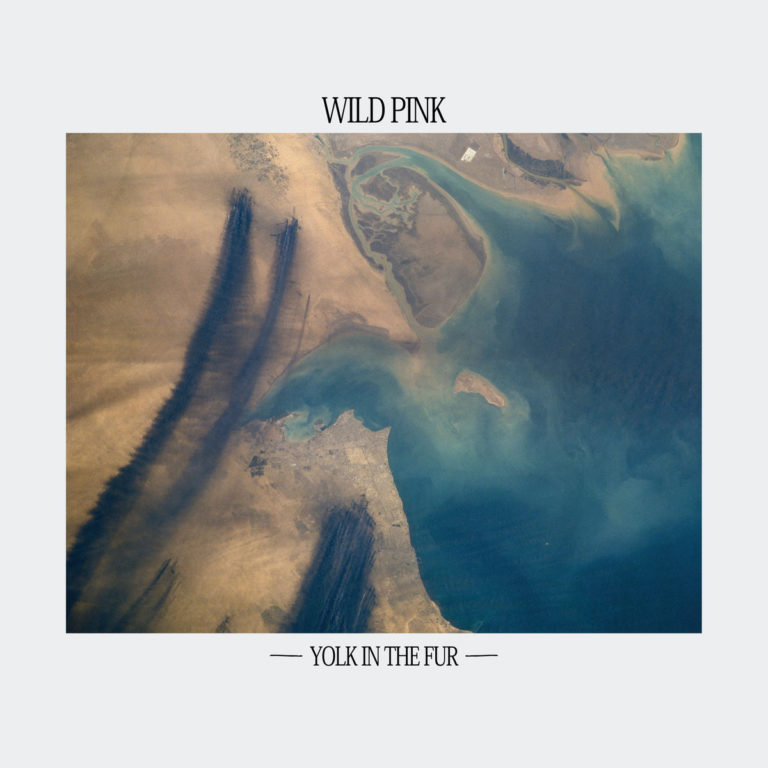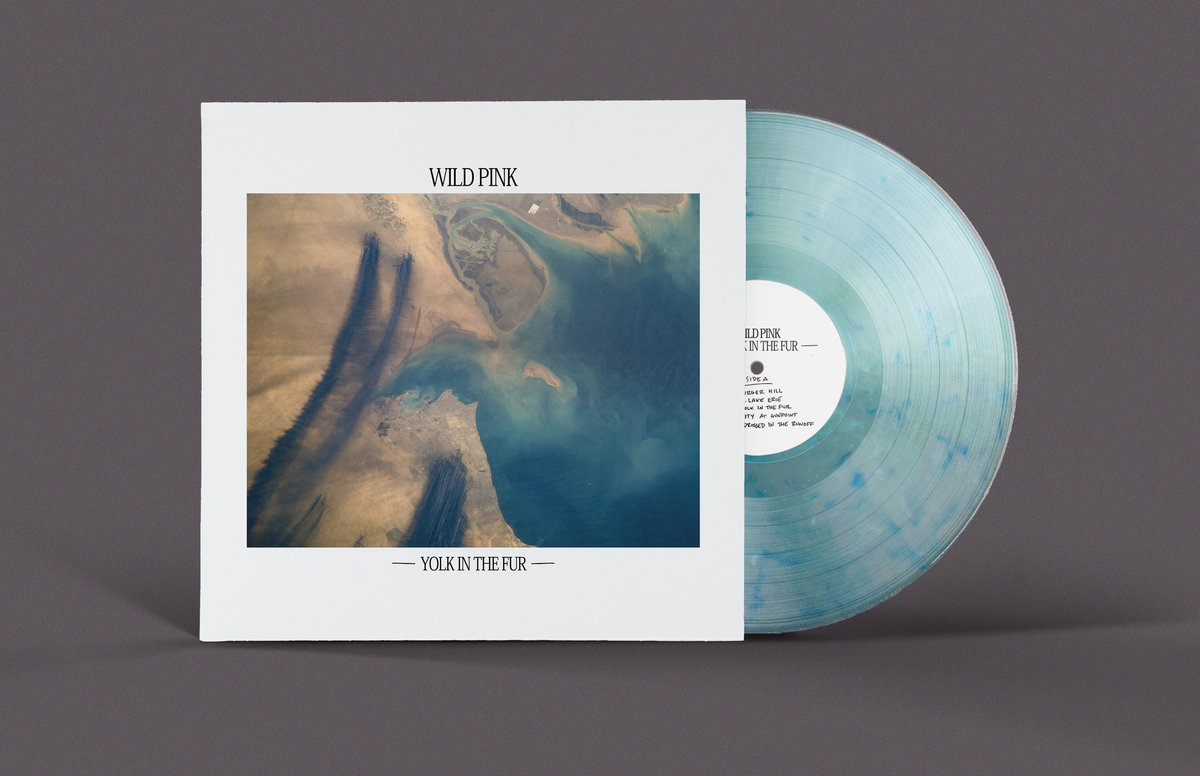We loved last year’s self-titled album by New York band Wild Pink, selecting the record as one of our favourites of 2017. The Tiny Engines release was notable for its ability to invoke big themes without calling them by name, John Ross’s songwriting personal and apolitical on the surface, though every scene and emotion felt moulded by exterior forces, things far larger and more diffuse than the direct stories in question. As such, the album figured as an exploration of life in a contemporary America marked by late capitalism and climate change, despite few explicit references to such things. The result was a sound that nailed the general lack of direction of the pre-Trump 2010s.
Ross feels like a narrator dropped into an ongoing narrative, not fully aware of the beginning or end, or even any coherent context, yet haunted by profound sensations of sadness, fear and guilt—an unshakeable, existential dread that suggests we’re going to pay for how this story is panning out. Wild Pink haven’t come to us amidst this chaos with magic cures or quick-fix solutions, but they’ve come to us nonetheless.
Not ones to keep us waiting, Wild Pink are back with a second full-length LP, Yolk in the Fur, again on Tiny Engines. Many have mentioned how the new album has shades of certain psych pop superstars, but it owes as just much to Springsteen and emotive arena rock (in the best way possible). Most importantly though, John Ross’s songwriting remains as interesting and probing as ever, grounded in the human experience yet open to all that moves around us. Again, this is brought to life through his knack for the understated, his voice never rising to a growl or yell, an earnest, anxious narration that forms the emotional core of the record.
The album opens with ‘Burger Hill’, which almost seems purpose built to prove this point. Slow and ruminative, the track is hushed by sombre snow-day silence, the antithesis of the so-called logic of firing your big guns at the beginning of an album. “It was still dark,” Ross sings in the opening lines “It was still snowing,” though the the weather is more a purifier than dead winter drift, the complications and indulgences covered beneath a quietening white sheet.
Bursting from the outro with upbeat percussion and winding pedal steel, lead single ‘Lake Erie’ is comparatively big and full of bombast, the turns of phrase and conversational diversions reminiscent of Wild Pink’s debut. It’s something of a thematic continuation too, Ross delivering lines on subjects as diverse as road traffic accidents, Tumblr neuroses, climate breakdown and the sixth extinction, though all are linked to lifelong sadness and united by a creeping dread—again that vague, rudimentary suspicion that we are about to suffer the consequences of our past and present ways of life. The difference here is that the concern is shifted to the forefront, meaning that while the tone is equally pessimistic as on the previous album, some degree of hope is found in naming and caring about the threats we face.
“I don’t know why
But it seems like there’s a reason for it all
Why some ancient slime crossed a line
Now there’s a war on all life on earth
And I am uneasy
Like I was in school when I thought
I thought I’d never get out”
[bandcamp width=100% height=120 album=3967667880 size=large bgcol=ffffff linkcol=0687f5 tracklist=false artwork=small track=3273541694]
Yolk in the Fur feels almost paradoxically both bigger and lighter, the hard edges that existed on the self-titled record smoothed away by sparkling synths and electric percussion that elevate the new-found purpose a little further. But that’s not to say there’s no bite left in these songs. Take the title track as an example, a wide-screen indie rocker that journeys from shimmering beginnings into pounded percussion and blown-out guitar. It’s a continuation of another facet of Wild Pink’s sound, the way the songs are chameleonic, constantly shifting and making new ground, refusing to be shackled by the conventions of verse-chorus dynamics. That said, on a wider level, the album functions as a whole, each song morphing from the remnants of the last, a much needed antidote to the attention-deficient sugar rush of algorithmically-curated playlists.
After interlude ‘Civility at Gunpoint’, the great sweeping ballad of ‘Jewels Drossed in the Runoff’ feels rich with a sense of heady warmth, and plays like something of a criticism of the apathetic tone of the debut album. “There’s nothing worse than pretending,” Ross sings, “that you don’t actually care.” However, this is not some magical transformation toward positivity, and ‘There is a Ledger’ is more optimistic than glad, the repeated refrain of “yeah, I hope we find peace” based on desires rather than genuine belief.
‘The Seance on St. Augustine St.’ begins slow and lumbering, tentative guitar and plodding percussion slowly leading to something of a crescendo, the taut midsection finding an easier rhythm and defiant tempo. The track is threaded by Ross’s eye for idiosyncratic details, with lines such as “You said boomers with hepatitis / might be spitting in your drink” building up a milieu both vivid and slightly paranoid, the narrator settling into a world not quite their own, or else unravelling from within, failing and taking the whole construction with them.
“The clock is ticking and I’m on my feet
I’ve got a feeling that I’m still asleep
I don’t know if I’m on track or so far away
Look around to the faces that used to pull me through
And they can’t help me now.The locks are missing on St. Augustine St. and there’s a ouija board but you can’t drink.
Clear my throat and ask the ghost ‘is this for real?’
I look around to the faces and they’re all different now
They can’t help me now”
[bandcamp width=100% height=120 album=3967667880 size=large bgcol=ffffff linkcol=0687f5 tracklist=false artwork=small track=158383744]
There’s a lightness present on ‘John Mosby Hollow Drive’, though the tone comes coupled with a self-conscious dig at the overly optimistic, again balancing any emergent positivity against a self-awareness of our situation, and acknowledging how optimism might be a privileged position. “Fate blessed you,” Ross sings, “show your thanks / With platitudes on your tote bags.” The song’s refrain cements this idea, and forms something of a credo for the album as a whole. Ross’s declaration “I don’t really know anything” doubles down on the confusion and doubt that marked the previous album, though now you feel he’s moving on in spite of it, rather than living within the voided stasis of apathy.
The grand and glittering ‘Love is Better’ is based on a secondhand encounter Ross had with unrequited love in an East coast restaurant. “It’s all real,” says Ross in an interview with Uproxx, “The first verse about a man in a bar, that all really happened […] There was a lot going on. Or maybe there wasn’t, and I was just projecting on it, but it seemed like this small scene in a bar had just exploded in my mind.” It’s another example of how Wild Pink balance the macro and the micro, peculiar descriptions and photographic details set against sweeping sentiments, the final conclusion of “Love is better than anything else” as close as Wild Pink have come to offering an answer to it all.
Closer ‘All Some Frenchman’s Joke’ feels like an acknowledgement of this, a shedding of the youthful skin of the debut album and the naive inertia it suggested. Uncertainty still reigns, as made clear by the record’s final line of “I don’t know what happens next,” though Wild Pink are learning that doubt does not have to crown cynicism and irony as the prevailing positions. Yolk in the Fur examines the same conditions of the self-titled record but chooses a different conclusion. Compassion and faith can exist, and not in spite of ambiguity but because of it. Indeed, if everything else is failing, then that might be all we can hope for.
Yolk in the Fur is out now on Tiny Engines, and you can get it on LP and cassette from their webstore or the Wild Pink Bandcamp page.


